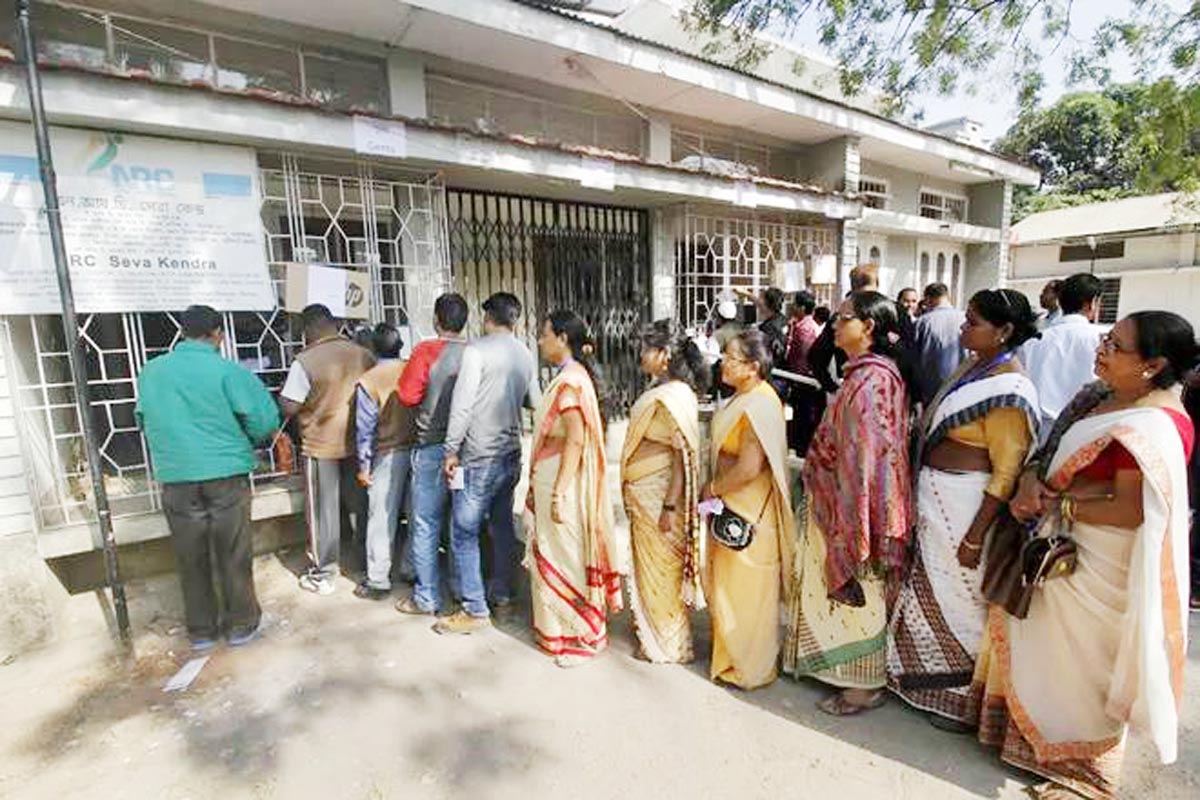NEW DELHI, Dec 9:
Disenfranchisement may be the first possible step against those whose names will not be part of the final list of the NRC to be published after the claims and objections window comes to an end this week, officials said Sunday.
As of now, just about 10 lakh people, out of the total 40 lakh, who were excluded in the draft of the National Register of Citizens (NRC) have submitted applications for inclusion of their names in the list of Assam’s citizens.
They have given relevant documents claiming that they are Indian citizens.
If someone cannot provide documents related to Indian citizenship, disenfranchisement may be the first possible step, a government official said.
However, a final decision on the fate of such paper-less people will be taken by the Supreme Court, which is supervising the massive exercise in Assam.
Following a directive of the Supreme Court, the process of filing claims and objections to the draft NRC began on September 25 and it will come to an end on December 15.
All those who were excluded from the draft NRC were given ample opportunities to prove their Indian citizenship, another official said.
If some people are not turning up to seek inclusion of their names in the NRC, it means they don’t have the required documents, the official said.
The draft NRC was prepared with painstaking efforts with a robust mechanism and hence the chances of error is very limited, he said.
However, all those who will be excluded from the final NRC will have the right to approach the Citizenship Tribunals followed by the competent courts to challenge the decision of the NRC authorities.
West Bengal Chief Minister Mamata Banerjee had claimed that the NRC exercise was carried out with a “political motive” to divide people and warned that it would lead to “bloodbath” and a “civil war” in the country.
Following exclusion of over 40 lakh people in the draft NRC, Banerjee had also said those “Indian citizens have become refugees in their own land”.
She had alleged the NRC was an “attempt to evict the Bengalis from Assam”.
The Supreme Court has also finalised a set of standard operating procedure (SOP) or disposal of claims and objections in the updating of the NRC.
The draft NRC was published on July 30 and included the names of 2.9 crore people out of the total applications of 3.29 crore.
There has been a huge controversy over the exclusion of 40 lakh people from the draft NRC.
Initially, the apex court had allowed the claimants to rely on any of the 10 documents — land documents, permanent residential certificate issued from outside the state, passport, Life Insurance Corporation of India policy, any licence or certificate issued by any government authority, document showing service or employment under the government or public sector undertaking, bank or post office accounts, birth certificates issued by a competent authority, educational certificate issued by boards or universities and records or processes pertaining to court provided they are part of processing in a judicial or revenue court.
However, on November 1, the court allowed five additional documents to rely upon for inclusion of names in the NRC.
The additional papers are — 1951 NRC, electoral roll up to March 24, 1971, citizenship certificate, refugee registration certificate and ration card.
For the claims and objections process, forms are available in 2,500 Seva Kendras in Assam, where people can file their appeal in their respective areas. People can file corrections to their names that are in the draft and also raise objections against suspected foreigners.
The NRC exercise, aimed at identifying illegal immigrants in the state that borders Bangladesh, was carried out only in Assam, which faced influx of people from Bangladesh since the early 20th century.
When the NRC was first prepared in Assam way back in 1951, the state had 80 lakh citizens then.
As per the 2011 census, Assam’s total population is over 3.11 crore. The process of identification of illegal immigrants in Assam has been widely debated and become a contentious issue in the state’s politics.
A six-year agitation demanding identification and deportation of illegal immigrants was launched by the All Assam Students Union in 1979. It culminated with the signing of the Assam Accord on August 15, 1985, in the presence of then Prime Minister Rajiv Gandhi. (PTI)


